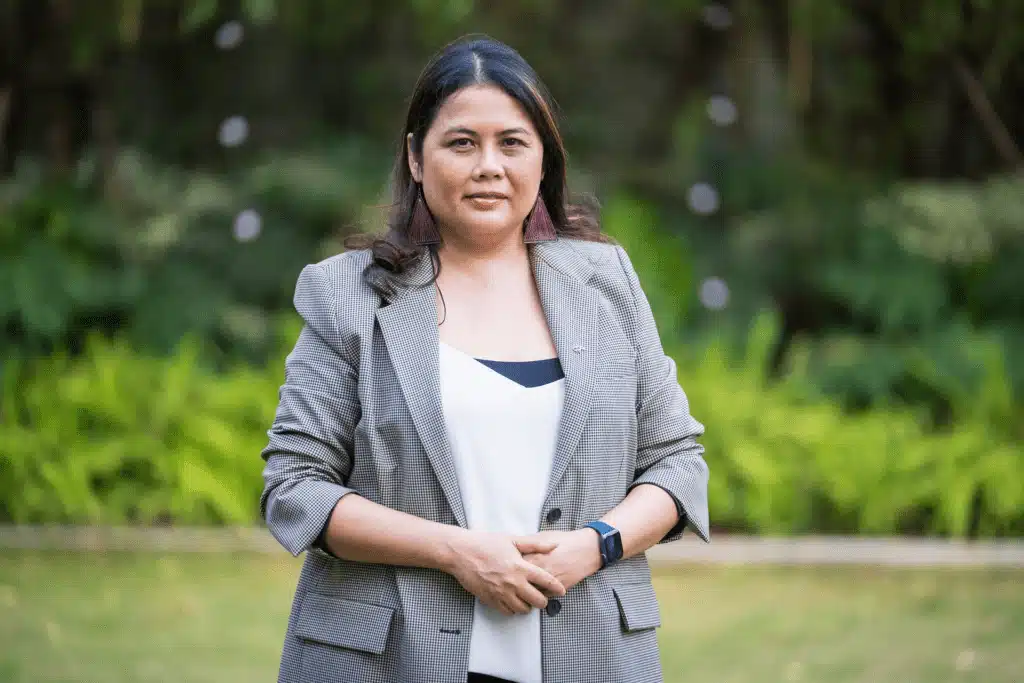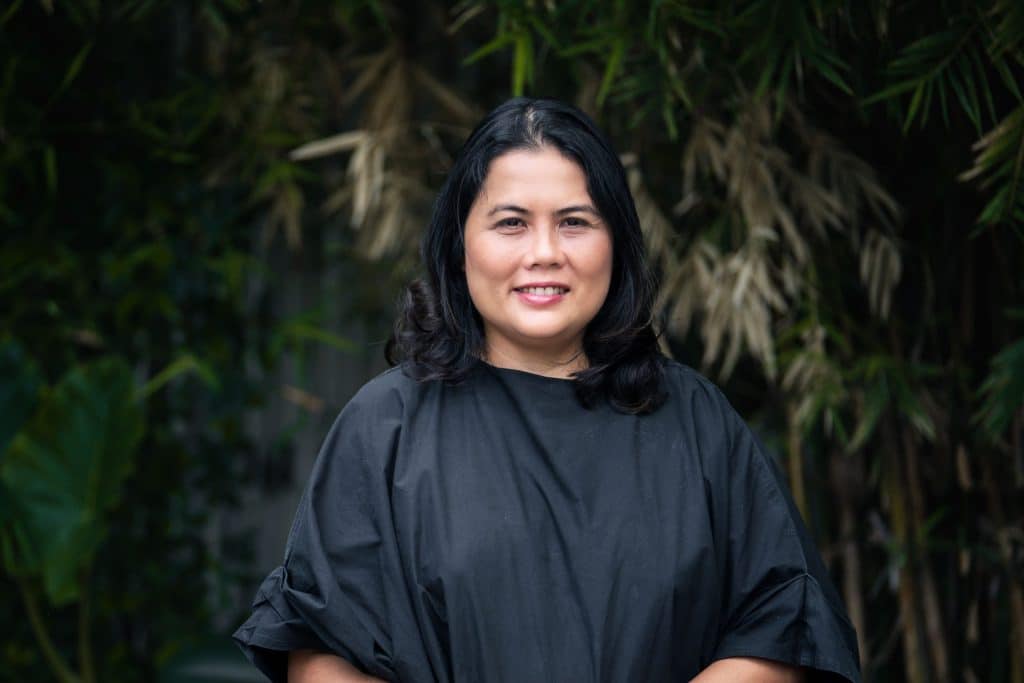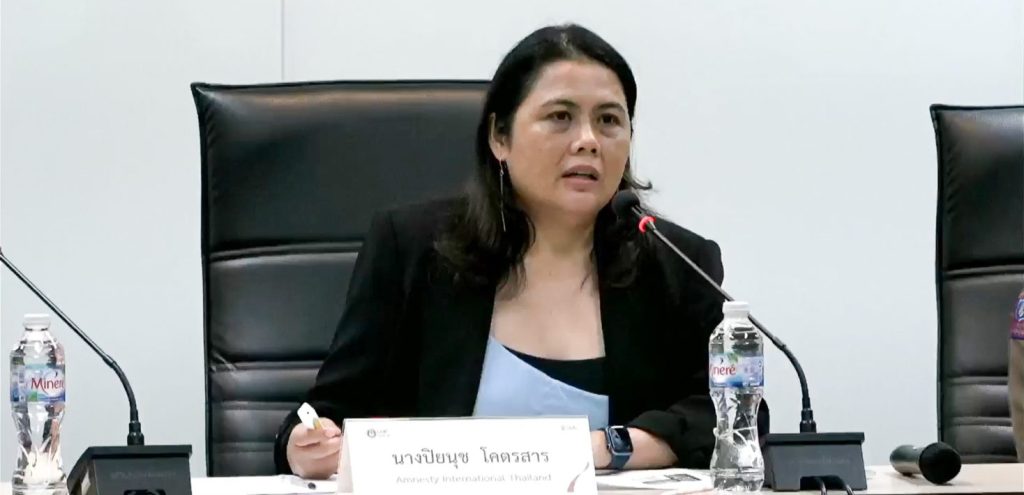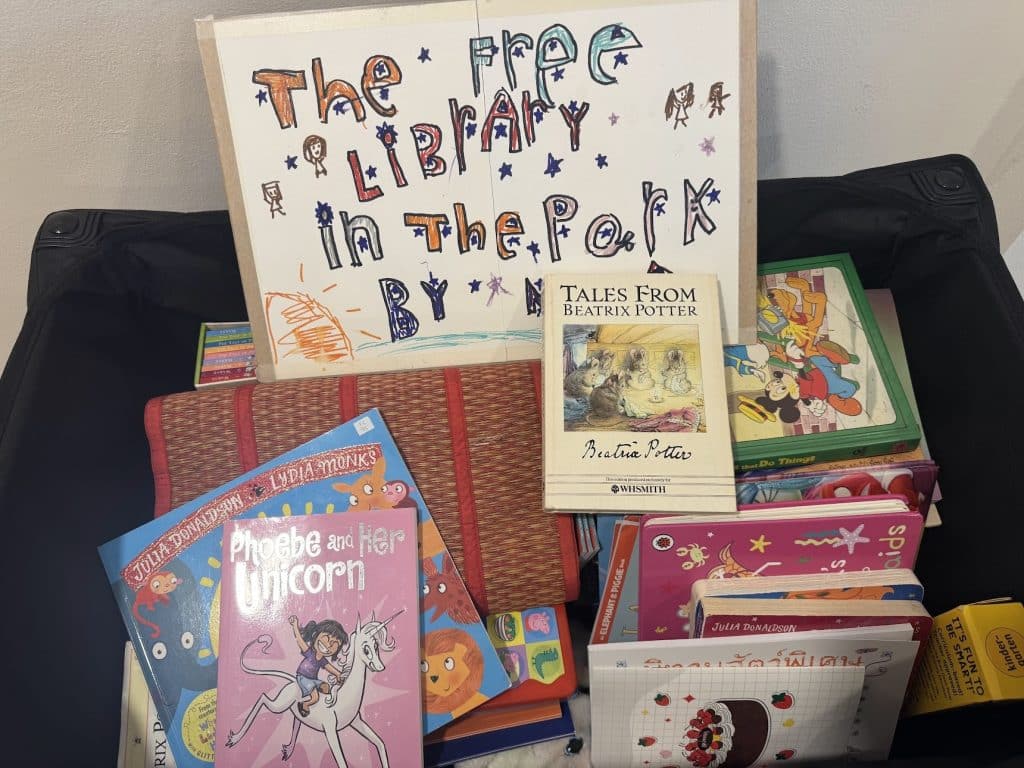Get to Know Yaya Through the Stories of Flavours and Norwegian Seafood
Join Urassaya “Yaya” Sperbund in her kitchen where family, culture, and Norwegian ...

When people think about Thailand’s human rights landscape, the headlines often speak of crackdowns, protests, and shrinking freedoms. But behind those stories are people who refuse to let hope fade. At the centre of this story is Piyanut Kotsan, a human rights advocate who has spent more than two decades standing alongside communities, youth, and civil society across Southeast Asia.
Rather than letting obstacles silence her, Piyanut has turned each challenge into fuel for commitment. Whether standing beside young activists, listening to marginalised communities, or creating space for children to dream, she carries a conviction that change begins at the grassroots and grows through collective courage. Let’s explore her journey and the vision that guides her work toward a future where rights and dignity are never out of reach.

Piyanut grew up in the northeast of Thailand, and both of her parents were teachers. From an early age, she saw the contrast between rural life and the opportunities education could provide, as her parents let her and her sisters to assist them in teaching in rural schools.
While studying at Mahidol University International College, Piyanut began engaging in deeper conversations about inequality. Together with her classmates, she initiated a volunteer teaching project in the northeast, her first step in turning awareness into action.
Piyanut joined Amnesty International Thailand in the wake of the 2014 military coup, first as Interim Director in 2015, and then as Executive Director from 2016 to April 2025. Those years were marked by constant challenges including restrictions on freedom of expression, limits on assembly and association, and unresolved cases of torture and enforced disappearance.
Under her leadership Amnesty Thailand spoke out on issues often considered too sensitive or dangerous, from freedom of expression and assembly to enforced disappearance. She shared with Koktail:
“One of the most remarkable moments was during the mass protests, when Amnesty spoke up publicly despite organisational threats. We ensured that the voices of young people, activists, and even children who joined the protests were recognised and protected. For me, the achievement was not only surviving those times but also helping to make visible the courage of ordinary people demanding their rights.”
For Piyanut her approach has never been about being a leader alone; she stands alongside young people, valuing their voices. She sees her generation and her colleagues at Amnesty as facilitators by sharing experiences, opening doors, and providing support, rather than making decisions for them.
At Amnesty she invested in capacity building, seed funding, training of trainers, and human rights education to give young people and marginalised communities the tools and space to lead.
“We organised human rights education trips and workshops, but the most powerful part was watching young people create articles, videos, and other creative work to amplify these voices. We were only the medium; they were the echo that made the issue louder and impossible to ignore.”
Today she serves as an independent consultant and works with the Board of the Asia Pacific Refugee Rights Network (APRRN). Piyanut works with board members to guide strategic direction and support refugee rights, prioritising amplifying refugee voices, connecting them with resources, and ensuring their leadership is visible regionally and internationally.
“For me advocacy has never just been a job; it’s a life commitment. When I stepped down from Amnesty I knew the challenges for human rights and justice in Thailand and the region were far from over. What changed was how I could contribute. Outside a large organisation I have the freedom to explore opportunities with communities and different groups, to connect closely with people on the ground, and to echo the voices of those often left behind. That’s what keeps me going.”
Piyanut focuses on projects where her time and skills can have the greatest impact, such as supporting grassroots groups that lack visibility or helping young people develop leadership and community engagement skills. Rather than taking on more than she can manage, she concentrates on what she can realistically achieve, treating each project as a learning opportunity.

Outside her advocacy, Piyanut is also running a free children’s library project with her six-year-old daughter.
“The inspiration came from my daughter, and also from my own childhood. Growing up in a small town in Mahasarakham, my parents encouraged me to read, and we even set up a little library at home. Books were how we learned about the world beyond our town. I realised that many families in Thailand don’t have easy access to child-friendly public libraries, and I wanted to change that. So I started small, creating a kids’ corner in the building where I live, and later bringing books to share with others.”

This reflects her profound belief in empowering young people as catalysts for positive, rights-based social change.
“I’ve always wanted to be a writer and an artist. I also imagine creating a community space–maybe a library, a café, a small theatre, or an art gallery, somewhere accessible where people can learn, share, and create together. It sounds like a big project, but you never know, it’s a dream I share with my daughter. In fact we still write little stories and make art together these days, so maybe the dream has already started in a small way. And I keep believing, because it’s that belief that keeps us alive.”
Her hope is that the project will grow, reaching more people and spaces so every child, rich or poor, has the chance to read. For Piyanut even small acts such as sharing a book, creating a tiny library corner, can have a big impact. Books can spark imagination, inspire dreams, and open the world to children. She believes that every voice matters, and even the smallest beginnings can create something powerful.
“You don’t need a big organisation to make a difference. Start where you are, with the skills and passions you already have. It could be writing, creating art, teaching, organising in your community, or simply standing in solidarity with those whose voices are silenced. Build networks of trust, take care of yourself so you can sustain the work, and remember that change comes step by step. Human rights is not a sprint; it’s a lifelong journey.”
Join Urassaya “Yaya” Sperbund in her kitchen where family, culture, and Norwegian ...
Saturdays are already made for Salmon, now there's even more reason to ...
What’s your #MySalmonStory? Join Thailand’s Tastiest Movement with Seafood from Norway There’s ...
VERY THAI: In this regular column, author Philip Cornwel-Smith explores popular culture and topics ...
Wandering around the globe, try out the signature tastes of cultures across ...
Twisted punishments and psychological horror return in Girl from Nowhere: The Reset, starring ...
Wee use cookies to deliver your best experience on our website. By using our website, you consent to our cookies in accordance with our cookies policy and privacy policy